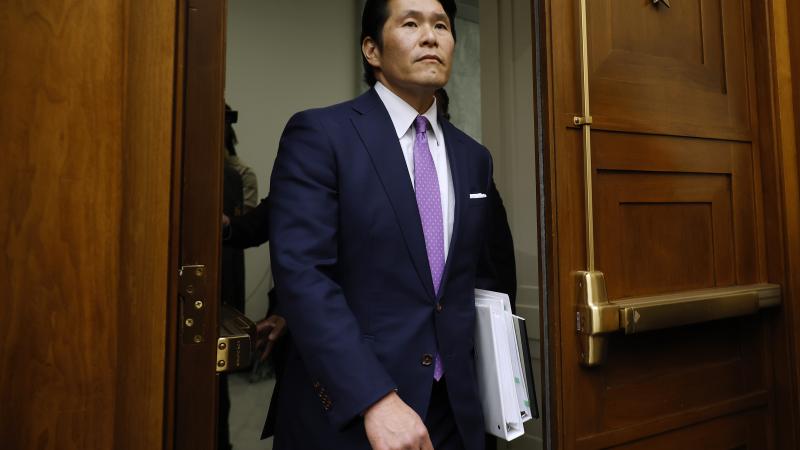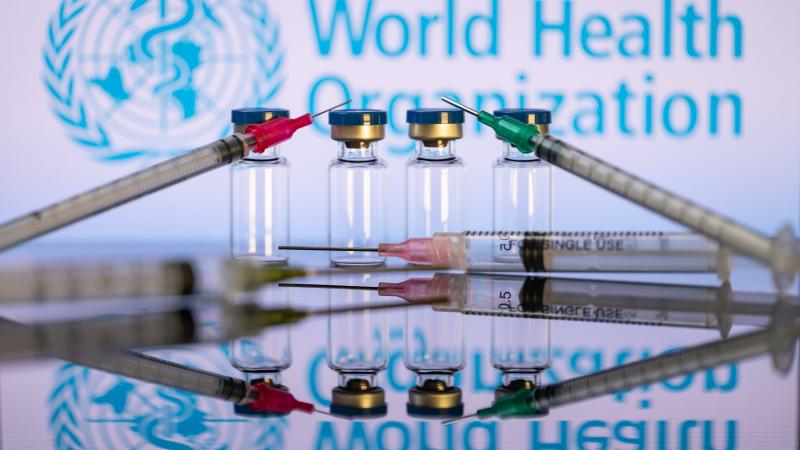'Biological sense': NY AG James sued for threatening pro-life centers over abortion 'reversal'
Attorney general who tangles with Trump recently beat contempt charges in different First Amendment lawsuit. Judge found her "voluntary interrogatories" to social media platforms didn't coerce them to remove "calls for violence."
Some pro-life pregnancy centers promote so-called abortion pill reversal for pregnant women who second-guess taking mifepristone, whose loosened regulation by the Food and Drug Administration is the subject of a pending Supreme Court ruling.
Democratic attorneys general from coast to coast are trying to shut down their efforts, most recently New York's Letitia James, a recurring figure in high-profile litigation involving former President Trump and hot-button free speech issues.
Heartbeat International, CompassCare and a dozen members of a "pregnancy help collective" sued James on Tuesday and sought a preliminary injunction Wednesday to stop her from "further threatening to sue" them for their "noncommercial speech about APR," which involves taking "supplemental" progesterone to "outcompete" mifepristone and continue pregnancy.
"James has long been a strident abortion advocate," the injunction motion says. "From street marches to tweetstorms, she has not hesitated to use her power and platform to attack corporations, nonprofits, and even sister states with whose abortion viewpoint she disagrees."
The centers seek a declaratory judgment that their APR speech does not violate New York false-advertising laws, as James asserts. The filings were made in New York Supreme Court, which is a trial court.
The AG got good news Tuesday in another First Amendment lawsuit, beating contempt charges leveled by social media platforms and First Amendment professor-blogger Eugene Volokh, who are challenging an Empire State law that compels them to track and report "hateful conduct."
James did not violate his injunction against the law by pressuring platforms to disclose how they are removing "calls for violence against Muslim and Jewish people and institutions" in the wake of the Israel-Hamas war, U.S. District Judge Andrew Carter ruled.
Her letters "make no reference to the Hateful Conduct Law or its enforcement and do not mandate any response at all or threaten the imposition of penalties for failure to respond," and James already has authority to issue "voluntary interrogatories," Carter wrote.
James did not issue the letters "in a manner which indicated 'persisten[ce] [or] urgen[cy],'" the judge said, quoting the 5th U.S. Circuit Court of Appeals' injunction against coercive communication from the feds pressuring platforms to censor disfavored content.
The 2nd Circuit is sitting on New York's appeal of the injunction to await the Supreme Court's ruling in a similar challenge to Texas and Florida laws that regulate how platforms may moderate user-posted content. James notified the panel of Carter's ruling Thursday.
James' threats to seek "injunctive relief, restitution, damages, civil penalties, auditing and compliance review, [and] costs" are the latest conflagration over the First Amendment rights of pregnancy centers, which Democratic AGs contend illegally mislead women by claiming that progesterone can reverse chemical abortions, as some research suggests.
New Jersey pregnancy centers are suing state AG Matthew Platkin for First Amendment retaliation and "unbridled discretion" through a subpoena they characterize as startlingly overbroad. California centers are fighting a lawsuit by state AG Rob Bonta.
Courts have been more skeptical of laws that specifically target particular pro-life speech, including a Colorado judge who issued an injunction last fall against the Centennial State's ban on abortion-reversal treatment.
Vermont pregnancy centers are suing the state for its APR promotion ban, alleging it's a retread of a California law the Supreme Court found likely unconstitutional. Illinois agreed to a permanent injunction against enforcement of its law after a judge found it "stupid and very likely unconstitutional."
The Thomas More Society, which represents the New York pregnancy centers and those in other lawsuits, said James started sending "notice of intention to sue" letters April 22 that gave them five business days to explain how their "repeated and persistent misleading statements and omissions" were not false advertising.
This threatened "lawfare by a powerful public official and her battalion of attorneys against charitable organizations with limited resources would jeopardize" the centers, others that "James has not yet gotten around to threatening," and their "First Amendment-protected, Christian life-affirming missions," the injunction motion says.
It accuses James of twisting state laws designed to stop "novel commercial frauds flooding New York in the late 1960s" and "advertising swindles such as bait and switch ads," causing victims to lose money, to target their unpaid APR speech.
"No court in the six decades since then has read that loss requirement out of the statute," the motion says, and James hasn't cited evidence or identified "a single allegedly deceptive communication by any particular" entity.
Even if their advocacy weren't legally protected, the centers are careful to qualify their statements about APR – that it "sometimes ... can" save a pregnancy following mifepristone, as backed by "decades of research and actual medical practice," the motion says.
"A pregnant woman’s body naturally secretes progesterone to, among other things, stimulate the flow of nutrients to her developing embryo," which mifepristone blocks by seeking the same receptors. But because it cannot reliably end an embryo's life, mifepristone must be followed by misoprostol to "expel the embryo, whether the developing child is alive or dead at that point."
James does not have the expertise to question these statements, which are based on 30 years of research by "pro-life doctors and medical professionals ... to look for a safe, effective, and reliable way to help a woman’s body more quickly detach mifepristone from the progesterone receptors," the motion says.
Progesterone is "a bioidentical hormone as safe as Tylenol" long used to prevent miscarriage, and by giving mifepristone "a new source of uterine progesterone to bind to," the woman's body "will more quickly reestablish embryo nutrition flow than it otherwise would" and sometimes succeed in saving the baby "from dying from starvation," it says.
The lawsuit cites Harvey Kliman, director of the reproductive and placental research unit at the Yale School of Medicine, who told The New York Times he would tell his own daughter to take "200 milligrams of progesterone three times a day for several days" if she accidentally ingested mifepristone. While personally pro-choice, he said the protocol "makes biological sense."
The Facts Inside Our Reporter's Notebook
Documents
Videos
Links
- pending Supreme Court ruling
- high-profile litigation involving former President Trump
- "pregnancy help collective" sued James Tuesday
- sought a preliminary injunction Wednesday
- contempt charges leveled by social media platforms
- Empire State law that compels them to track and report "hateful conduct
- 5th U.S. Circuit Court of Appeals' injunction
- some research suggests
- New Jersey pregnancy centers are suing AG Matthew Platkin
- California centers are fighting a lawsuit by AG Rob Bonta
- Colorado judge who issued an injunction
- Vermont pregnancy centers are suing the state
- Illinois agreed to a permanent injunction
- Thomas More Society
- The New York Times













